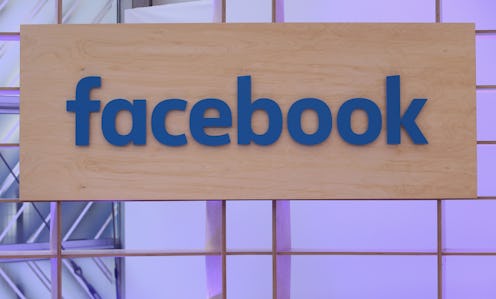News
Do You Trust Facebook With Your Money?
Facebook may be on its way to becoming "Facebank." The Financial Times reported Monday that Zuckerberg and co are "only weeks away" from acquiring the necessary clearance in Ireland to allow Facebook users to store and transfer money on the site — ultimately, using Facebook as an "e-money" platform. If Facebook receives regulatory approval, Facebook will be well on its way to ensuring that it is the only site you will ever need to visit on the internet ever again.
If successful, the money transferring process would be viable throughout Europe by way of a process known as "passporting." Because Facebook is not a credit institution (yet), it must apply for authorization as a payment institution. Based on considerations regarding certain capital and risk management requirements, any country in Europe (in this case, Ireland) may choose to accredit the company, allowing it render payment services anywhere within the EU.
This latest move suggests Facebook's continuing expansion into new dimensions - and not just the virtual reality dimension offered by Oculus - demonstrating that social media in the 21st century is far more than sharing cat videos or posting pictures of your latest meal. According to the Financial Times, Facebook is also in conversations with three London-based startups in the mobile money transfer space, TransferWise, Moni Technologies and Azimo. Each of the companies boasts that by sending money through their services, you can avoid charges incurred by banks when transferring money between countries and across oceans.
It remains unclear, however, whether users will latch on to this new payment system, especially given the company's disastrous last attempt with payments in 2011 - Facebook Credits. Remember that? Didn't think so. Though originally intended to allow users to play games and buy apps, it met with little success and has since been discontinued.
More importantly, some Facebook users may be slow to trust the social media giant with their money, especially given Facebook's propensity to use personal information to target its users with ads. You know all those creepy ads on your page that somehow seem to know exactly what you just Googled? Yeah — some people may be uneasy to allow the company free access to their personal finances in addition to their personal information.
Facebook's interest in breaking into the mobile payments space would put them in direct competition with Chinese tech hard-hitters Alibaba and Tencent, who have been far more successful than their American counterpart, Google, in combining their social media platforms with online payments. Earlier this year, Alibaba partnered with Sina Weibo, the Chinese answer to Twitter, to create a new payment platform called Weibo Payment.
Unlike Twitter, Sina's main source of revenue is not from advertising, but rather from e-commerce, which has made the payment system extremely lucrative thus far. Tech Crunch reported in January that "48% of active daily Sina Weibo users have already integrated their Alibaba accounts so they can share items from Alibaba’s e-commerce platforms."
While China has seen success in the area, Google has fared far worse. Google Wallet, which allows Android users to pay for purchases using their phones, has proven to be a bust. Though the app cost $300 million in total to develop and launch, it has only been downloaded 10 million times over the course of its two years in existence. For reference, Flappy Bird was downloaded 50 million times during its 28 days on the market.
Facebook is trying to prove that American tech companies can indeed break into the mobile payments space, and Facebook seems particularly interested in emerging markets. Their highly publicized $19 billion acquisition of WhatsApp, an app that is particularly popular overseas in Asia, as well as last month's announcement that more than 100 million people in India were on Facebook speak to the company's growing interest and viability in emerging market spaces. Facebook's Connectivity Lab is also working with drone technology to deliver Internet to remote areas of the world.
If successful, Facebook would be able to expand its revenue stream away from pure advertising, which is currently the vast majority of its business. However, last year, Facebook reported pulling $900 million by charging a fee on transactions completed via its platform. If Ireland grants Facebook its necessary regulatory clearance, this number would theoretically grow exponentially, as Facebook would be able to offer its payment services throughout the entirety of Europe.
Of course, we're still a few weeks away from knowing the company's fate. But regardless, one thing's for sure: Facebook is taking over the world, one platform at a time.
